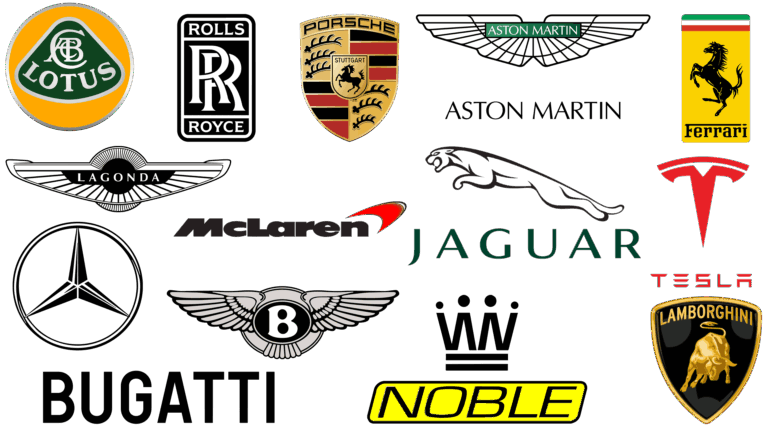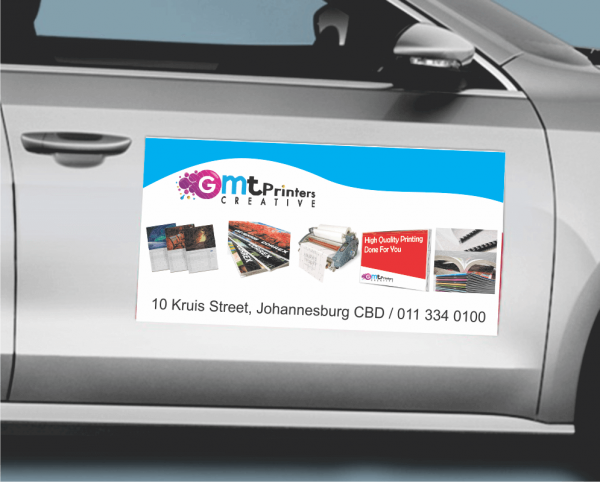Sports Car Brand Names: A Definitive Guide to Automotive Excellence
Sports Car Brand Names: A Definitive Guide to Automotive Excellence cars.truckstrend.com
From the roar of a finely tuned engine to the sculpted lines that slice through the air, sports cars have always captivated the human imagination. More than just vehicles, they are expressions of speed, luxury, and engineering prowess, embodying dreams of freedom and exhilaration. At the heart of this allure are the Sports Car Brand Names – marques that have forged legacies, pushed boundaries, and defined what it means to create an automotive masterpiece. Understanding these brands is key to appreciating the rich tapestry of the automotive world, recognizing their unique philosophies, and navigating the vast landscape of high-performance machines.
This comprehensive guide delves into the world of sports car brands, exploring their histories, innovations, and the distinct identities that make each one legendary. Whether you’re a seasoned enthusiast or new to the realm of high-octane motoring, prepare to journey through the names that have shaped, and continue to shape, the pinnacle of automotive performance.
Sports Car Brand Names: A Definitive Guide to Automotive Excellence
Historical Titans & Enduring Legacies
Certain names resonate with an almost mythical quality, built on decades of racing success, iconic designs, and an unwavering commitment to performance. These brands are the bedrock of the sports car world.
- Ferrari (Italy): Perhaps the most iconic name in sports cars, Ferrari is synonymous with passion, speed, and racing heritage. Founded by Enzo Ferrari in 1929, the Prancing Horse has dominated racetracks and adorned the driveways of the elite. Known for their naturally aspirated V12 engines (though V8s and hybrids are now prominent), Rosso Corsa red, and exclusive status, Ferrari models like the 250 GTO, F40, and LaFerrari are pinnacles of automotive desire.
- Porsche (Germany): Precision, engineering excellence, and everyday usability define Porsche. Founded by Ferdinand Porsche, the brand’s flagship 911, introduced in 1963, remains one of the most recognizable and enduring sports car designs globally. Porsche perfectly blends track-ready performance with surprisingly practical daily driving capabilities, offering a range from the agile Boxster/Cayman to the formidable 911 Turbo S and hyper-performance hybrids.
- Lamborghini (Italy): Born from a rivalry with Ferrari, Ferruccio Lamborghini’s company set out to create grand touring cars that were both powerful and refined. Over time, Lamborghini evolved into a maker of flamboyant, aggressively styled supercars. The Miura, Countach, Diablo, and Aventador are testaments to their commitment to audacious design, V10/V12 power, and uncompromising presence.
- Aston Martin (United Kingdom): Elegance, sophistication, and a touch of James Bond cool define Aston Martin. With a heritage spanning over a century, Aston Martin specializes in luxurious grand tourers that blend powerful engines with sumptuous interiors and classic British charm. Models like the DB5, Vantage, and DBS Superleggera embody a unique blend of performance and refined luxury.

Modern Marvels & Hypercar Innovators
Beyond the established giants, a new breed of brands has emerged, pushing the absolute limits of speed, technology, and exclusivity. These are the creators of hypercars – vehicles that redefine what’s possible on four wheels.
- Bugatti (France/Germany): Revived by Volkswagen, Bugatti is the epitome of automotive extravagance and extreme performance. Known for breaking speed records, their cars like the Veyron and Chiron are engineering marvels, boasting quad-turbo W16 engines, astronomical price tags, and unparalleled top speeds. Bugatti represents the ultimate expression of automotive excess and capability.
- McLaren (United Kingdom): With a legendary Formula 1 pedigree, McLaren Automotive brings cutting-edge racing technology directly to the road. Their cars are characterized by carbon fiber chassis, advanced aerodynamics, and powerful twin-turbo V8 engines. Models like the F1, P1, and 720S are renowned for their surgical precision, incredible speed, and pure driving focus.
- Koenigsegg (Sweden): Founded by Christian von Koenigsegg, this Swedish boutique manufacturer specializes in ultra-exclusive hypercars designed to break records. Koenigsegg vehicles are known for their innovative engineering (e.g., Jesko’s Light Speed Transmission), extreme power outputs, and bespoke craftsmanship, making them some of the fastest and most technologically advanced cars on the planet.
- Pagani (Italy): Horacio Pagani’s creations are as much works of art as they are high-performance machines. Known for their exquisite detailing, bespoke materials (like visible carbon fiber weaves), and powerful Mercedes-AMG V12 engines, Pagani models like the Zonda and Huayra offer a sensory experience that transcends mere speed.

Affordable Performance & Everyday Thrills
Not all sports cars carry six-figure price tags. Several brands excel at delivering thrilling driving experiences that are accessible to a wider audience, focusing on driver engagement and value.

- Mazda (Japan): The Mazda MX-5 Miata is arguably the best-selling roadster of all time, celebrated for its lightweight design, perfect balance, and engaging driving dynamics. It proves that immense power isn’t necessary for immense fun.
- Toyota (Japan): With models like the GR Supra and GR86 (developed with Subaru), Toyota has re-entered the affordable sports car market with a focus on performance and driver enjoyment. These cars offer excellent handling and engaging powertrains at competitive prices.
- Subaru (Japan): Known for its all-wheel-drive performance sedans, Subaru also contributes to the accessible sports car segment with the BRZ (twin to Toyota GR86), offering a pure, rear-wheel-drive experience.
- Ford (USA): The Ford Mustang is an American icon, offering muscular performance and distinctive styling at a relatively affordable price point. From the Coyote V8 GT to the track-focused Dark Horse, the Mustang remains a performance bargain.
- Chevrolet (USA): The Chevrolet Corvette has evolved from a classic American muscle car into a legitimate global supercar contender, particularly with its mid-engine C8 generation. Despite its performance, it remains remarkably accessible compared to European rivals.
Luxury Grand Tourers & Elegant Powerhouses
Some brands master the art of blending blistering performance with unparalleled luxury and comfort, creating vehicles perfect for high-speed cross-continental journeys.
- Mercedes-AMG (Germany): AMG, the performance division of Mercedes-Benz, transforms luxury sedans and coupes into formidable sports machines. Their vehicles are characterized by powerful handcrafted engines, sophisticated technology, and a blend of performance and opulent comfort.
- BMW M (Germany): Similar to AMG, BMW M GmbH elevates standard BMW models into high-performance driving machines. Known for their precision engineering, balanced chassis, and powerful inline-six and V8 engines, M cars offer a dynamic and engaging driving experience without sacrificing luxury.
- Bentley (United Kingdom): While primarily known for ultra-luxury sedans, Bentley also produces high-performance coupes and convertibles like the Continental GT, which combine immense W12 or V8 power with exquisite craftsmanship and supreme comfort, making them ultimate grand tourers.
Emerging Players & Electric Revolutionaries
The automotive landscape is constantly evolving, with new brands emerging and established ones embracing electrification.
- Rimac (Croatia): A true pioneer in electric hypercars, Rimac has stunned the world with models like the Nevera, demonstrating that electric powertrains can deliver mind-boggling speed and performance, pushing the boundaries of what’s possible.
- Lotus (United Kingdom): Traditionally known for lightweight, agile sports cars, Lotus is now fully embracing an electric future, with cars like the Evija hypercar signaling a new era of high-performance EVs for the brand.
- Tesla (USA): While not a traditional sports car brand, Tesla’s impact on performance EVs is undeniable. The upcoming Roadster aims to redefine electric supercar performance with unprecedented acceleration and range.
What Makes a Sports Car Brand Iconic?
The longevity and allure of a sports car brand stem from several key factors:
- Heritage and Racing Pedigree: A history of success on the racetrack often translates into credibility and performance expertise on the road.
- Distinctive Design Philosophy: Iconic brands have recognizable design languages that evolve but remain true to their core identity.
- Engineering Excellence: A relentless pursuit of performance, innovation, and technological advancement.
- Exclusivity and Brand Storytelling: Limiting production and crafting compelling narratives around the brand enhances desirability and mystique.
- Driver Engagement: Ultimately, an iconic sports car brand delivers an exhilarating and connected driving experience.
Choosing the Right Sports Car Brand for You
Selecting a sports car is a deeply personal decision, influenced by more than just raw speed. Here’s practical advice to guide your choice:
- Define Your Budget: Be realistic about not just the purchase price, but also insurance, maintenance, fuel, and potential depreciation.
- Intended Use: Will it be a daily driver, a weekend toy, or a dedicated track machine? This dictates the balance between comfort, practicality, and raw performance.
- Performance Desires: Do you crave blistering acceleration, razor-sharp handling, or a comfortable grand touring experience?
- Brand Philosophy: Do you prefer the precision of Porsche, the passion of Ferrari, the flamboyance of Lamborghini, or the understated elegance of Aston Martin?
- Test Drive Extensively: Drive as many different models from various brands as possible. The feel behind the wheel is paramount.
- Research Reliability & Ownership Costs: Some brands are notoriously expensive to maintain. Check owner forums and specialist reviews.
- Consider Depreciation: Some sports cars hold their value better than others.
- Personal Connection: Ultimately, the best brand for you is one that excites you, fulfills your driving desires, and connects with you on an emotional level.
Sports Car Brand Names: A Glimpse at Typical Price Ranges
It’s important to note that prices for sports cars vary wildly based on model, trim level, optional extras, and whether they are new or used. The table below provides a general range for new models from prominent sports car brands.
| Brand Name | Country of Origin | Key Characteristics (General) | Typical New Price Range (USD) * |
|---|---|---|---|
| Ferrari | Italy | Exclusivity, Racing Heritage, V8/V12, Supercar Performance | $250,000 – $1,500,000+ |
| Porsche | Germany | Precision, Everyday Usability, Engineering Excellence | $60,000 – $300,000+ |
| Lamborghini | Italy | Audacious Design, V10/V12, Extreme Presence, Supercar | $200,000 – $700,000+ |
| Aston Martin | United Kingdom | Luxury Grand Tourers, Elegance, British Charm, V8/V12 | $150,000 – $350,000+ |
| McLaren | United Kingdom | F1 Tech, Carbon Fiber, Pure Performance, Supercar/Hypercar | $200,000 – $1,000,000+ |
| Bugatti | France/Germany | Ultimate Hypercar, Record-Breaking Speed, W16 Engine | $3,000,000 – $5,000,000+ |
| Koenigsegg | Sweden | Extreme Innovation, Bespoke Hypercars, Record Breaker | $2,000,000 – $4,000,000+ |
| Pagani | Italy | Automotive Art, Exquisite Detail, Mercedes-AMG V12 | $2,500,000 – $5,000,000+ |
| Mercedes-AMG | Germany | Performance Luxury, Handcrafted Engines, Advanced Tech | $80,000 – $200,000+ |
| BMW M | Germany | Driving Dynamics, Precision, Balanced Performance | $70,000 – $150,000+ |
| Ford | USA | Muscle Car Icon, Value Performance, V8 Power | $30,000 – $90,000+ |
| Chevrolet | USA | American Performance, Mid-Engine Supercar (C8) | $60,000 – $150,000+ |
| Mazda | Japan | Lightweight Roadster, Pure Driving Fun, Affordability | $30,000 – $40,000 |
| Toyota | Japan | Accessible Performance, Reliable, Driver-Focused | $30,000 – $60,000 |
| Rimac | Croatia | Electric Hypercar, Record-Breaking EV Performance | $2,000,000 – $3,000,000+ |
*Prices are approximate and subject to change based on model year, trim, options, taxes, and market conditions.
Frequently Asked Questions (FAQ) about Sports Car Brand Names
Q1: What’s the most expensive sports car brand?
A1: Brands like Bugatti, Koenigsegg, and Pagani consistently produce some of the world’s most expensive cars, with price tags often starting in the multi-million dollar range for their hypercar models.
Q2: Which brand makes the fastest sports cars?
A2: The "fastest" can refer to top speed or acceleration. For outright top speed, Bugatti and Koenigsegg are frequent record-breakers. For acceleration (0-60 mph), electric hypercars from brands like Rimac are now leading the pack.
Q3: Are all sports cars expensive to maintain?
A3: Generally, yes, sports cars tend to be more expensive to maintain than regular cars due to specialized parts, advanced technology, and higher labor costs at authorized dealerships. However, brands like Mazda (MX-5 Miata) and some Ford/Chevrolet models offer relatively more affordable maintenance compared to exotic European marques.
Q4: What’s the difference between a sports car, a supercar, and a hypercar?
A4:
- Sports Car: Generally refers to a two-seater or 2+2 car designed for performance and handling, offering an engaging driving experience (e.g., Porsche 911, Mazda MX-5).
- Supercar: A high-performance luxury sports car with exceptional speed, power, and often exotic design, typically from premium brands (e.g., Ferrari 488, Lamborghini Huracán).
- Hypercar: An extremely rare, limited-production car that pushes the boundaries of performance, technology, and price, often exceeding supercar capabilities (e.g., Bugatti Chiron, Koenigsegg Jesko, McLaren P1).
Q5: How do I choose a reliable sports car brand?
A5: Reliability can vary even within a brand. Generally, Japanese brands like Mazda and Toyota have strong reliability records. For higher-end brands, look for models with proven powertrains and read owner reviews. Regular, specialized maintenance is crucial for the longevity of any sports car.
Q6: Are electric sports cars becoming more common?
A6: Absolutely. Many traditional sports car brands (Porsche, Lotus, Maserati, Ferrari) are investing heavily in electric and hybrid models, and new electric-focused brands (Rimac, Tesla) are pushing performance boundaries. The future of sports cars will undoubtedly involve significant electrification.
Conclusion
The world of Sports Car Brand Names is a vibrant ecosystem of innovation, passion, and unparalleled engineering. From the hallowed halls of Ferrari and Porsche, steeped in decades of racing glory, to the cutting-edge workshops of Bugatti and Koenigsegg, redefining the limits of speed, each brand offers a unique perspective on the pursuit of automotive perfection.
Whether your dream involves a nimble roadster, a luxurious grand tourer, or a record-shattering hypercar, understanding these brands allows you to appreciate the intricate craftsmanship, the relentless pursuit of performance, and the rich histories that define them. They are more than just names; they are legends, each telling a story of ambition, design, and the enduring human desire for the ultimate driving experience. As the automotive landscape evolves, these brands will continue to inspire, innovate, and captivate generations of enthusiasts, ensuring the thrill of the sports car lives on.






